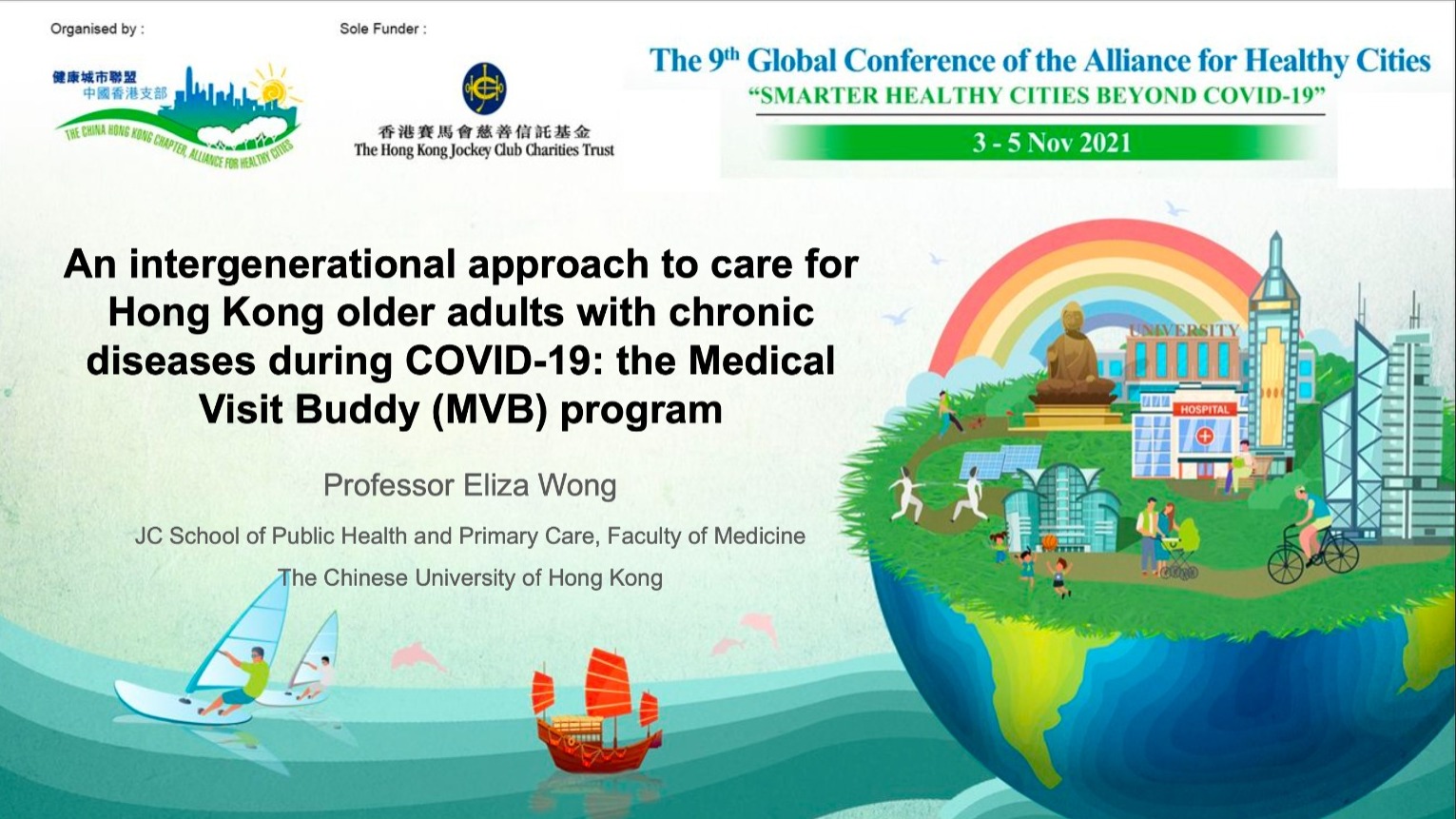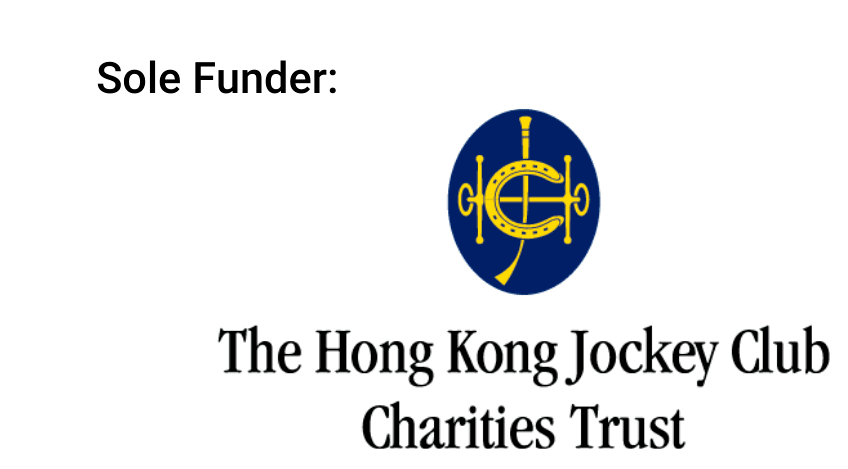Abstract 9 - An intergenerational approach to care for Hong Kong older adults with chronic diseases during COVID-19: the Medical Visit Buddy (The Chinese University of Hong Kong)

An intergenerational approach to care for Hong Kong older adults with chronic diseases during COVID-19: the Medical Visit Buddy (MVB) program
Eliza Lai-yi Wong, PhD 1 , Eng-kiong Yeoh MBBS, FRCP 1
1 Centre for Health Systems and Policy Research, JC School of Public Health and Primary Care, Faculty of Medicine, The Chinese University of Hong Kong, HKSAR China
The COVID-19 and the consequential physical distancing measures have disrupted people’s daily lives and public services provision. Older population, especially those with chronic diseases, are one of the most disadvantaged groups during pandemic. The MVB-program aimed at providing intergenerational social support for Hong Kong older adults with chronic diseases, to help them build resilience in the difficult time and maintain psychosocial well-being.
Sixty-two older adults aged 60+ with chronic diseases were recruited from local NGOs. Each participant was paired with 1-2 university students from the Medicine-related and Social Sciences disciplines. Each older participant received at least four visits from the student(s) during Aug 2020-Feb 2021. Amid the fluctuating situation of COVID-19, MVB adopted a hybrid delivery mode including phone, face-to-face visits and activities in stable times. By the end of 6-month program, a health promotion booklet consisted of personalized health management recommendations such as infection control measures, healthy lifestyle, and psychological well-being promotion was made for the older adults during the hardship.
To evaluate the effectiveness of the program, all participants were invited to pre-, post-, and 6-month follow-up questionnaire surveys. Theory-informed outcomes regarding intergenerational relationship, health and well-being were measured and analysed. Eighteen older adults and seventeen students also participated in in-depth interviews to share their experiences.
Participants reported significant increases in understanding and appreciation for the other generation, suggesting an enhanced intergenerational relationship and social support. In addition to maintaining healthy lifestyle, older adults shared their appreciation of being heard, valued and supported during the hard time when they could not see their families often. They also expressed the merits of this program in facilitating different generations to support each other’s physical and mental health, i.e. they felt less lonely. The MVB program suggested the important role of intergenerational relationship and social support to mitigate the impacts of the COVID-19 and maintain health in community. The pandemic has unequal impacts across different groups and our program calls for more policy- making efforts to address the amplified health inequality.


